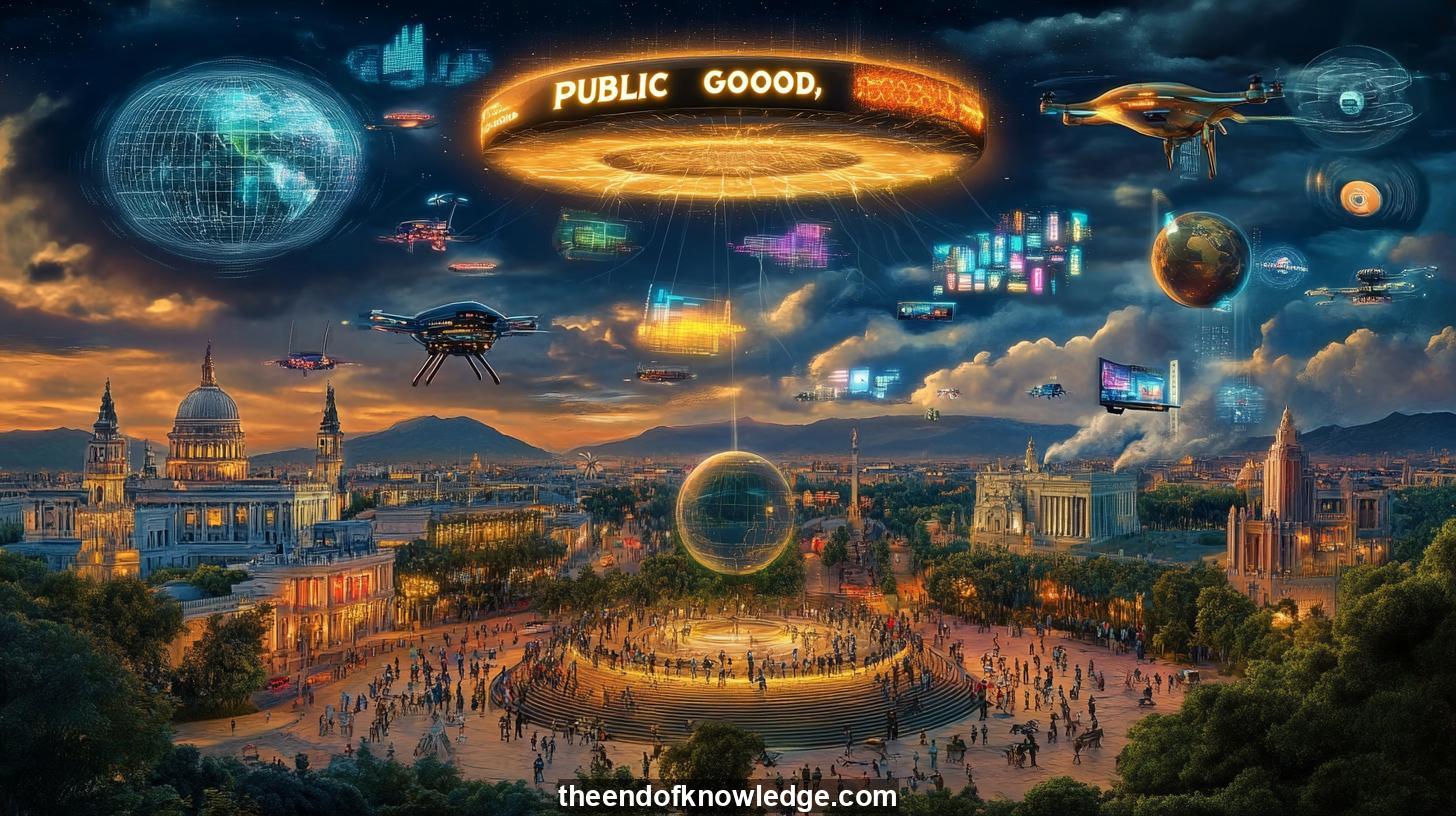 >
>
Concept Graph, Resume & KeyIdeas using DeepSeek R1 :
Resume:
discusses the potential integration of artificial intelligence (AI) into political systems and governance, highlighting both the opportunities and challenges this presents. Participants in the debate explore how AI could enhance decision-making processes by providing data-driven insights, potentially leading to more efficient governance. However, they also express concerns about the ethical implications, including bias in AI systems, lack of transparency, and the potential for manipulation by powerful entities. The discussion touches on the idea of using AI to create more direct forms of democracy, possibly through blockchain technology, which could increase citizen engagement and transparency in decision-making.30 Key Ideas:
1.- AI could enhance governance by providing efficient, data-driven decision-making processes.
2.- Risks include bias in AI systems and potential manipulation by powerful entities.
3.- AI might enable more direct democracy through technologies like blockchain.
4.- Job displacement due to automation could necessitate a universal basic income.
5.- Ethical concerns include accountability and the need for frameworks to ensure fair AI deployment.
6.- The impact of AI on employment and the economy requires new social structures.
7.- AI could either exacerbate inequalities or democratize decision-making processes.
8.- Transparency in AI decision-making processes is crucial for public trust.
9.- The potential for AI to manipulate information poses significant ethical challenges.
10.- Ensuring accountability in AI-driven political systems is essential.
11.- AI's role in governance necessitates a balance between efficiency and ethical considerations.
12.- The integration of AI into politics requires careful planning to avoid exacerbating social divides.
13.- Ethical frameworks must guide the development and deployment of AI in governance.
14.- Public engagement and education on AI's role in politics are vital for informed decision-making.
15.- The future of AI in governance depends on addressing current challenges and risks.
16.- AI could revolutionize governance but requires robust ethical and regulatory structures.
17.- The debate highlights the need for interdisciplinary approaches to AI integration in politics.
18.- Ensuring inclusivity in AI-driven governance systems is crucial for fairness.
19.- The potential for AI to enhance transparency in governance is significant.
20.- Ongoing research and dialogue are necessary to navigate the complexities of AI in politics.
21.- Balancing innovation with ethical considerations is key to the successful integration of AI in governance.
22.- AI's impact on employment underscores the need for adaptive social policies.
23.- The discussion emphasizes the importance of public awareness in shaping AI's role in politics.
24.- Collaborative efforts between policymakers and technologists are essential for ethical AI deployment.
25.- The integration of AI into governance presents both transformative opportunities and significant challenges.
26.- Addressing the ethical implications of AI in governance is crucial for its successful implementation.
27.- underscores the need for a nuanced approach to AI's integration into political systems.
28.- Ensuring that AI serves the public good is a central theme in the debate.
29.- The discussion highlights the importance of accountability in AI-driven governance.
30.- The future of AI in governance requires careful consideration of its ethical, social, and political implications.
Interviews by Plácido Doménech Espí & Guests - Knowledge Vault built byDavid Vivancos 2025